Course creation is a fantastic revenue generator for anyone who wants to build thought leadership, help develop their niche, or inspire the next generation of specialists in their field. With so many options for where creators can build, post, and monetize content, we’ve decided to organize the top tools into one place. For the purpose of this article, “free” platforms are those that instructors don’t earn direct revenue on and “paid” platforms allow instructors to monetize their work.
Skip to:
- What is Coursera?
- Why are Coursera alternatives worth it?
- Top 5 free alternatives to Coursera
- Top 9 paid alternatives to Coursera
- Factors to consider when comparing online teaching platforms
- What is the ultimate online learning platform?
What is Coursera?
Coursera is a popular online learning platform where users can access courses and earn certificates. This helps students who want to understand a subject better, people who want to pivot careers, or thought leaders who want to stay up to date with the latest knowledge in their niche. As a course creator, posting material on a site like Coursera allows you to build a better industry reputation and maybe even monetize some of your content.
Coursera pros:
- Great reputation for high-quality content. Plenty of universities and state colleges across the United States offer degree programs through the platform. Companies like Google and IBM also offer certificate programs.
- Wide course offerings. Coursera offers 6,900+ courses to date, in a wide range of subjects like information technology, humanities, science, language, and business management.
- Fully remote education. Like many online course platforms, Coursera enables students to learn from anywhere which also allows creators to teach from anywhere.
Coursera cons:
- Certificates are not free. While it may be free to learn the content in some courses, to earn a certificate that proves a course has been completed successfully, students need to pay the course price.
- Courses are time-consuming. Most degree and certificate courses take several months or years to complete, meaning it will take a while to put together and grade course content. It’s not just something to do in your free time.
Why are Coursera alternatives worth it?
The main reason why Coursera alternatives are worth checking out is because one solution may not fit everyone. Even though Coursera has a great global presence and supports many niches, it still doesn’t meet a lot of learning and teaching needs. For example, microlearning is an up and coming trend that helps students take in knowledge at a faster speed. Coursera doesn’t facilitate microlearning approaches as well as other platforms can. Students might also prefer the course layout, pricing models, student experience, or course offerings of a Coursera competitor as well so it’s worth seeing how courses perform on different sites.
Top 5 free alternatives to Coursera
| Free course learning platform | Best for |
| EdX Audit Track | Teaching degrees & certificates |
| Saylor Academy | Helping students earn college credits |
| Alison | Getting started |
| Khan Academy | K-12 teachers & tutors |
| MIT OpenCourseWare | MIT professors |

EdX is much more focused on technical knowledge with course subjects in the field of biotechnology, blockchain, data policies, and digital transformation. Courses are all offered online and self-paced.
Monetization model:
- Instructors do not earn an income from students in the Audit Track
Pros:
- Audit track allows students to take course content for free which allows you to gain some brand reputation with a wider audience
- Partners with leading institutions like Berkeley, Harvard, Google, and AWS so students will find it
- Choose specific enrollment dates to teach on a cohort basis
- No need to grade assignments for students on the Audit Track
Cons:
- No direct revenue generation from students on the Audit Track
- High competition with other courses on the site
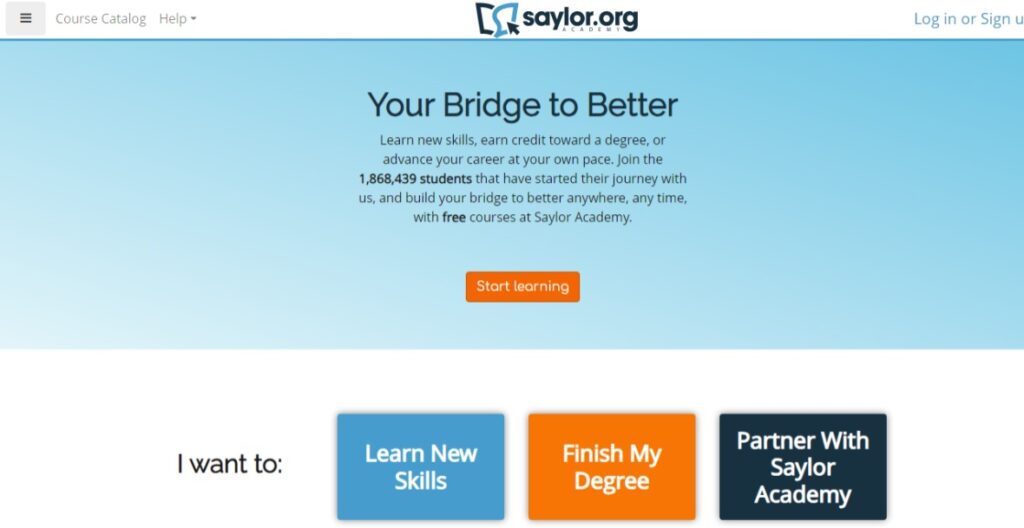
Saylor Academy is a nonprofit online course learning platform, so it can be an ideal option for anyone wanting to support a great cause. Since 2008, their mission has been “to offer free and open online courses to all who want to learn.” Saylor Academy course credits can also transfer to college credits at select institutions.
Monetization model:
- Since Saylor Academy is a nonprofit, instructors do not earn direct revenue
Pros:
- The platform prioritizes educational innovation so it’s a great place to share thought leadership
- Courses align directly to college-level material which can benefit those with experience teaching in a formal institution
- Low course competition
Cons:
- Instructors need to prove their qualifications to be able to teach
- The website and UX are outdated which may make it harder to navigate
- No direct revenue generation
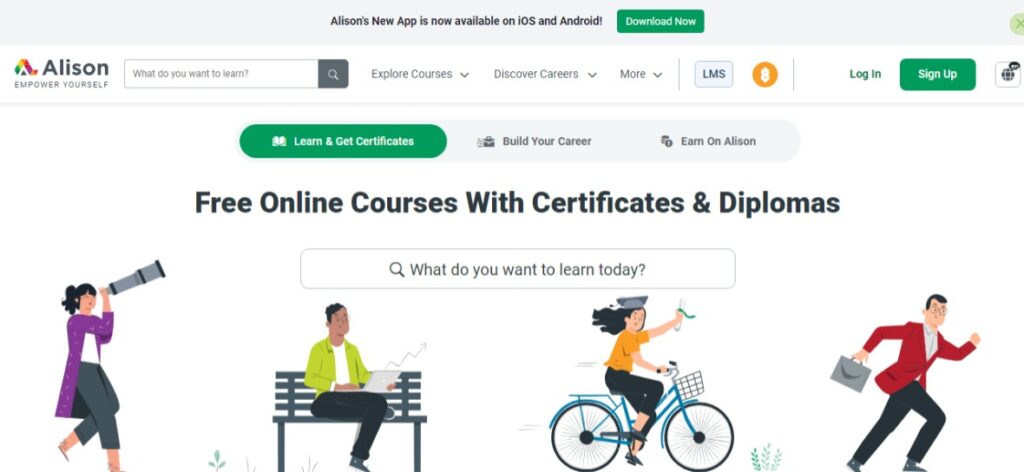
Alison Academy offers free online courses that can be built into a certificate or diploma. They specialize in content that helps their students get placed in their dream career or upskill to earn a higher title in their current field.
Monetization model:
- Since the course are free to take, instructors do not earn direct revenue from the courses they teach
- There are opportunities to earn revenue from advertising on the platform
Pros:
- Courses are fairly short in length so it’s easy to manage multiple at the same time
- It’s easier to target a wider demographic of students since the courses are free to take
- Less competition than other platforms
Cons:
- There are quality control issues as instructors don’t need to go through a rigorous vetting process
- Instructors aren’t likely to earn a high income on the platform

Khan Academy is another non-profit online learning platform. Started by Salman Khan in 2008 to help his cousin with tutoring, the platform is now hugely popular with elementary and high school students who need additional explanations for common school topics like math, science, and economics.
Monetization model:
- Instructors do not earn money from volunteering to teach on Khan Academy
Pros:
- Offers creators an opportunity to teach via whiteboard-style learning which is helpful for youth educators
- Courses are short which makes them easier to create and manage
- Supports a great cause
Cons:
- Need to be cognizant of aligning with the modern K-12 curriculum
- Does not offer certifications so students will not be able to prove their learned knowledge from you
- Very little onboarding instructions which may make it difficult for students to progress through your courses
- No direct revenue generation
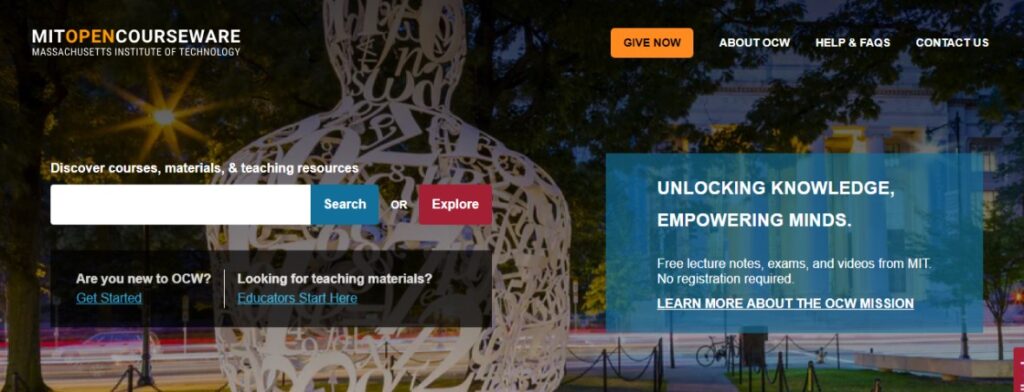
Created by the Massachusetts Institute of Technology, MIT OpenCourseWare was created to help university-level students with preparation and studying for their courses. It can be used by students enrolled in any school, not just MIT!
Monetization model:
- As lesson materials are free, instructors are not paid additional fees for their contributions
Pros:
- Professors at MIT can easily repurpose their content from existing classes
- Students on this platform are likely genuinely interested in learning which improves course completion rates
- Instructors benefit from MIT’s high reputation
Cons:
- Instructors need to be already working as a teaching employee at MIT
- Courses need to be downloaded which makes it difficult to access them on multiple devices
- Website is outdated which makes it slightly challenging to browse course selections and update new course materials
- No direct revenue generation
Top 9 paid alternatives to Coursera
| Paid course learning platform | Best for |
| EdX Verified Track | Teaching degrees & certificates |
| Thinkific | Creating courses easily |
| Udemy | Generic content creation |
| Udemy Business | Employee trainers |
| Skillshare | Artists and hobbyists |
| Codecademy | Programmers |
| LinkedIn Learning | Professional leaders |
| Masterclass | Well-known industry experts |
| DataCamp | Teaching AI technology |
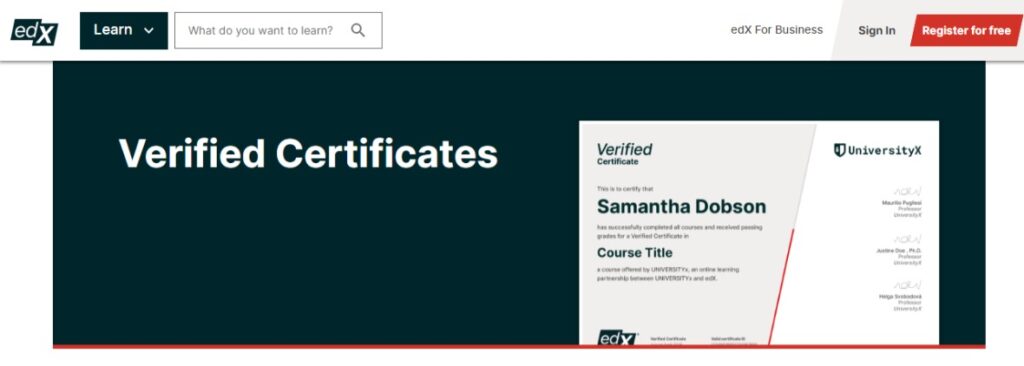
The EdX Verified Track is the paid version of EdX’s offerings. It provides a certificate to learners so they can prove their new knowledge to employers, professors, and social networks.
Pricing model:
- Pricing is per course and varies depending on the institution and length of course or program
Pros:
- Ability to earn a degree or certificate from a world-class educational institution
- Assignments are graded and instructors provide detailed feedback
- All courses are self-paced so learners can work on their own schedule
Cons:
- Courses tend to be more expensive than on competing sites
- Not all courses can be accessed in offline mode, which makes remote learning difficult
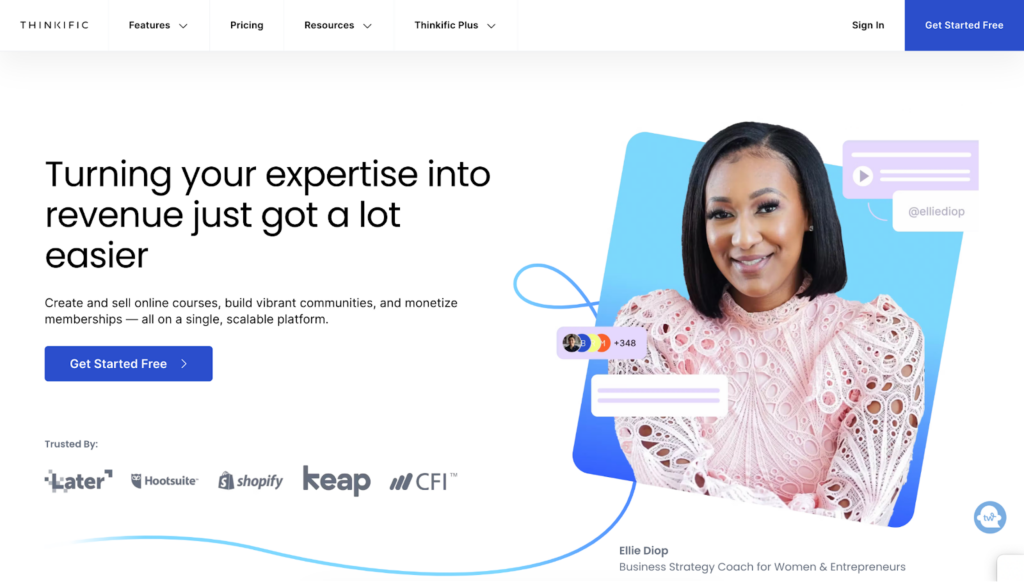
Thinkific is an online course creation tool and an online learning marketplace, making it a suitable place for both creators and learners. The platform specializes in simplified course creation, including many tools to boost enrollment, course completion, and knowledge retention.
Monetization model:
- Earn direct revenue on course sales
- Required to purchase a plan to start monetizing (starts at $0)
Pros:
- Instructors can create individual course websites with custom branding rather than hosting them in a shared marketplace (easier to make a course stand out)
- Detailed reporting on student progress
- Plenty of monetization models
- Host a learning community to increase engagement and promote mentorship
Cons:
- Instructors need their own subscription plans
- Less ability to leverage a shared marketplace for marketing efforts
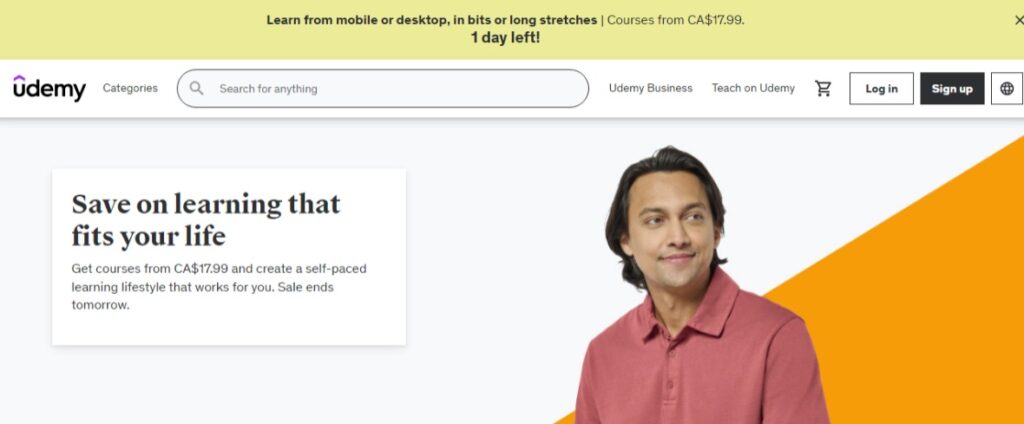
Udemy likely has one of the broadest course offerings on the market today with over 210,000 options to choose from! It is well positioned for many subject matters and languages which makes it a great fit for teaching almost any subject.
Monetization model:
- Courses are priced by individual instructors but they are generally more affordable and they go on sale frequently
- Instructors are paid monthly based on learner engagement in their courses
Pros:
- Ability to create lessons for almost any topic of interest
- Students can earn certificates on your courses which are shareable on socials
- Courses can be created and accessed via a mobile app or browser for flexibility
Cons:
- Less support for course building and maintenance
- Students won’t be paying a high dollar value for courses on Udemy which decreases potential profits
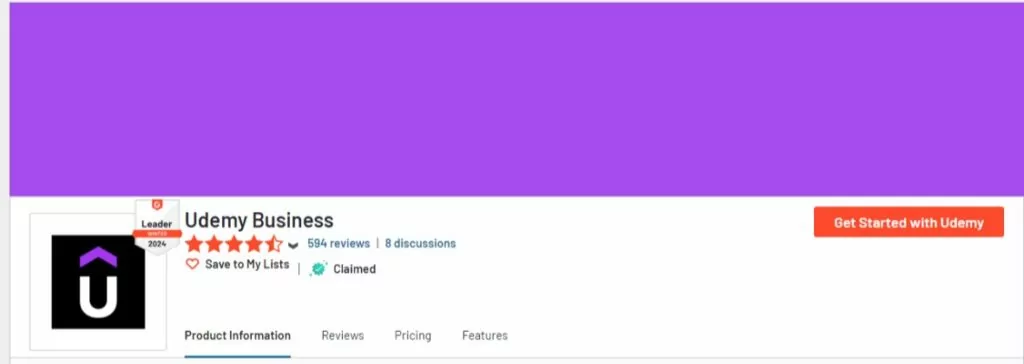
Udemy Business is designed for companies to use to train their employees. It creates a space for employees to upskill in their roles, making it ideal for corporate trainers or sales enablement leads to practice their skills.
Monetization model:
- Instructors are paid monthly based on learner engagement in their courses
- 20% of Udemy Business revenue is saved for the instructor payout pool
Pros:
- Students can only purchase Udemy Business as a team so revenue is likely higher
- Offers multiple teaching styles including cohort based, immersive learning, or on-demand learning
- Managers are more likely to be pushing their employees to complete course content
Cons:
- High competition with other courses as there are over 15,000 in the library
- Instructors will need to ensure alignment to popular professional designations and exams like AWS, PHR, and PMP
- All lessons will be to a larger group and may have administrative burdens with management

Skillshare considered itself a learning community for creative people. Artists, hobbyists, and anyone with a curious interest in hands-on activities can learn from other people who have practiced their craft enough to create a course on it.
Monetization model:
- Instructors are paid out based on the number of minutes that students on paid plans watch per month on the instructor’s content
Pros:
- Priority is on creativity and artistry, which few other platforms specialize on
- It will be easier to stand out to competition if instructors have narrow niche topics
- It’s easier to earn higher revenue by encouraging students to stay watching the video
Cons:
- Little support in course creation and maintenance process which can lead to a high variation in quality of content
- High competition for generic creative courses (eg. photography basics)
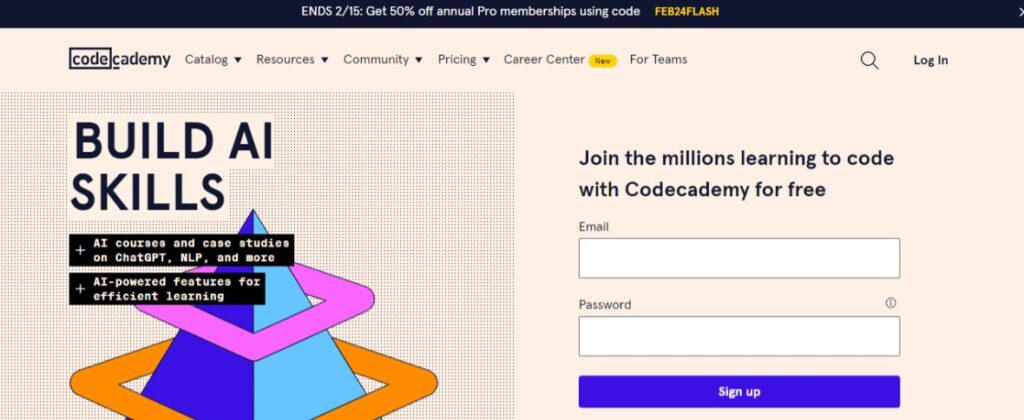
Codecademy promotes themselves as a place for beginner coders to learn the basics of programming for free but they do offer a Pro version of the platform that students need to pay for. The platform also offers a Codecademy Creator Program that pays instructors for their work.
Monetization model:
- Revenue share from a portion of Codecademy Pro subscriptions
- Metrics-based payouts dependent on enrollments and completions
Pros:
- Ability to deliver coding assignments for a mobile app as well as a laptop
- Large community audience with forms, networking events, and a Discord group
- No need to grade assignments or practice problems for students on the free plan
Cons:
- There is a high demand for coding courses which may make teaching overwhelming
- High competition with other courses and platforms that teach programming
- Students may find potential quality control issues as instructors do not need to go through a rigorous testing process
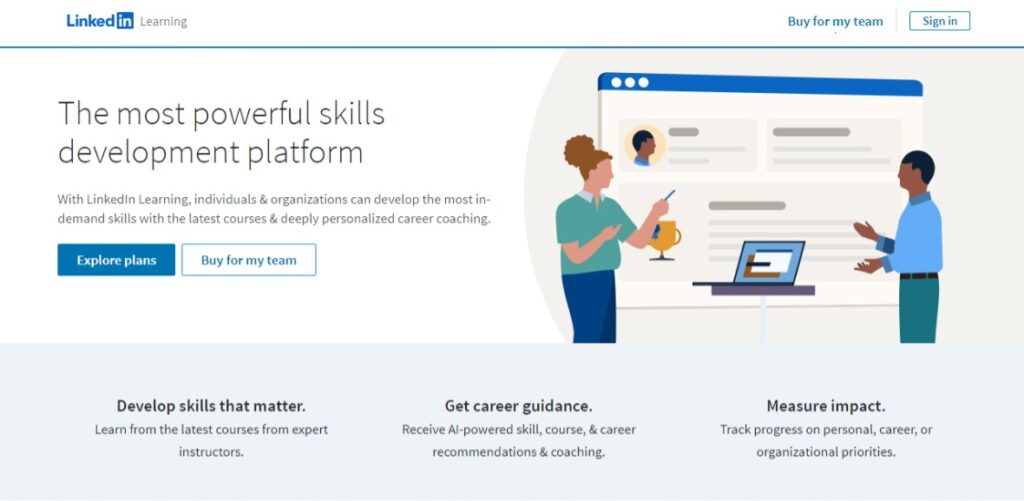
LinkedIn Learning is a go-to for people who want to improve their professional career. It’s well known in the professional community and many higher ed institutions have partnered with the platform to extend the learning opportunities for their students.
Monetization model:
- Royalties are paid out on a monthly basis based on a percentage of revenue that is generated from your courses
Pros:
- Interactive learning community that allows students to connect and mentor each other
- Dashboards for managers or teachers to oversee student learning progress
- Connects to student’s LinkedIn profiles to offer upskill opportunities based on their current role
Cons:
- Very high competition of course content and can be difficult for students to find new content
- LinkedIn controls some aspects of the course management process like pricing and marketing of the course

MasterClass is where industry experts gather to teach their skills. Not many people get to become a teacher on MasterClass which ensures they maintain an exceptionally high quality of course content. For example, Gordon Ramsey and RuPaul both host classes!
Monetization model:
- Instructors can earn an up-front payment of around $100,000 before working
- 30% of course sales are shared with the instructor
Pros:
- Often very popular and sought after courses by students and fans meaning its unlikely course registration will be low
- A lot of support in producing course videos which will make them look professional and well structured
- High revenue generation possibilities
Cons:
- Very difficult to become an instructor on Masterclass
- Requires a lot of time to set up, promote, and maintain and likely instructors are bound to actively represent their course for at least several years
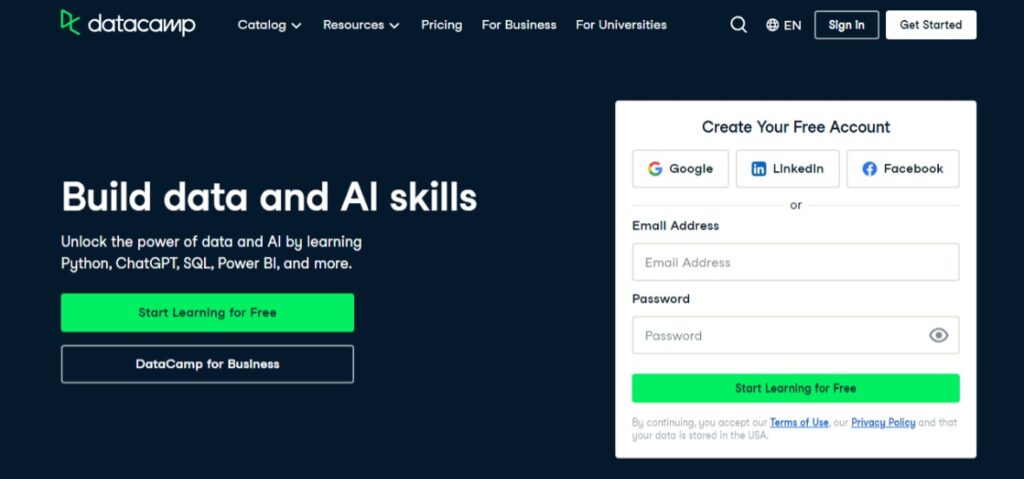
For anyone who has a keen interest in artificial intelligence (AI) or machine learning, DataCamp is one of the best places to start sharing knowledge.
Monetization model:
- Instructors receive royalties based on a percentage of their courses sold
Pros:
- Takes a more hands-on approach to digital learning which improves retention
- Ability to promote courses via the desktop or mobile apps
- Working on a specialized platform will reduce the amount of competition
- Students can earn certificates to share with their social networks and improve the instructors industry reputation
Cons:
- Competition still exists from other coding and online learning websites
- The public instructor profiles are limited which reduces brand awareness building for educators
Factors to consider when comparing online teaching platforms
- Diversity of course offerings. The broader the library of existing content, the higher competition will be. It’s important to think through if your content will be able to stand out.
- Cost considerations. Students may gravitate towards one platform or another based on cost. Free platforms are great for students who are new to a subject or don’t have the means to pay for a course. Paid platforms will attract students who are serious about their learning and willing to pay for a higher reputation or quality.
- Global reach. Consider if you want to teach students in another region. Things like time zones, language barriers, local regulations, and content accuracy may become issues.
- Certifications. Platforms that offer certifications allow your students to prove that they have taken a course from you which can strengthen your reputation as a content creator or thought leader.
- Intellectual property rights. When you post content on an online learning platform, you risk having your creations shared, copied, or tampered with. Look for a platform with high security protocols to protect your intellectual property.
- Marketing support. Some platforms will offer in-house marketing tools that allow you to promote your courses to new audiences and continue monetizing your work.
What is the ultimate online learning platform?
All-in-all, there are many great platforms out there that can make sharing knowledge online easier. One of the most popular examples is Coursera, but there are plenty of Coursera alternatives that allow instructors to gain practice, earn money, and build on their industry reputation. Because each platform offers a unique experience for both the educator and the student, there is no one-size-fits-all platform. If possible, it’s recommended to test out multiple sites to see which one works better based on financial need, marketing requirements, preferred level of global reach, and niche topic area.
A great place to start is Thinkific, which offers a free version of their platform that you can sign up to here!






